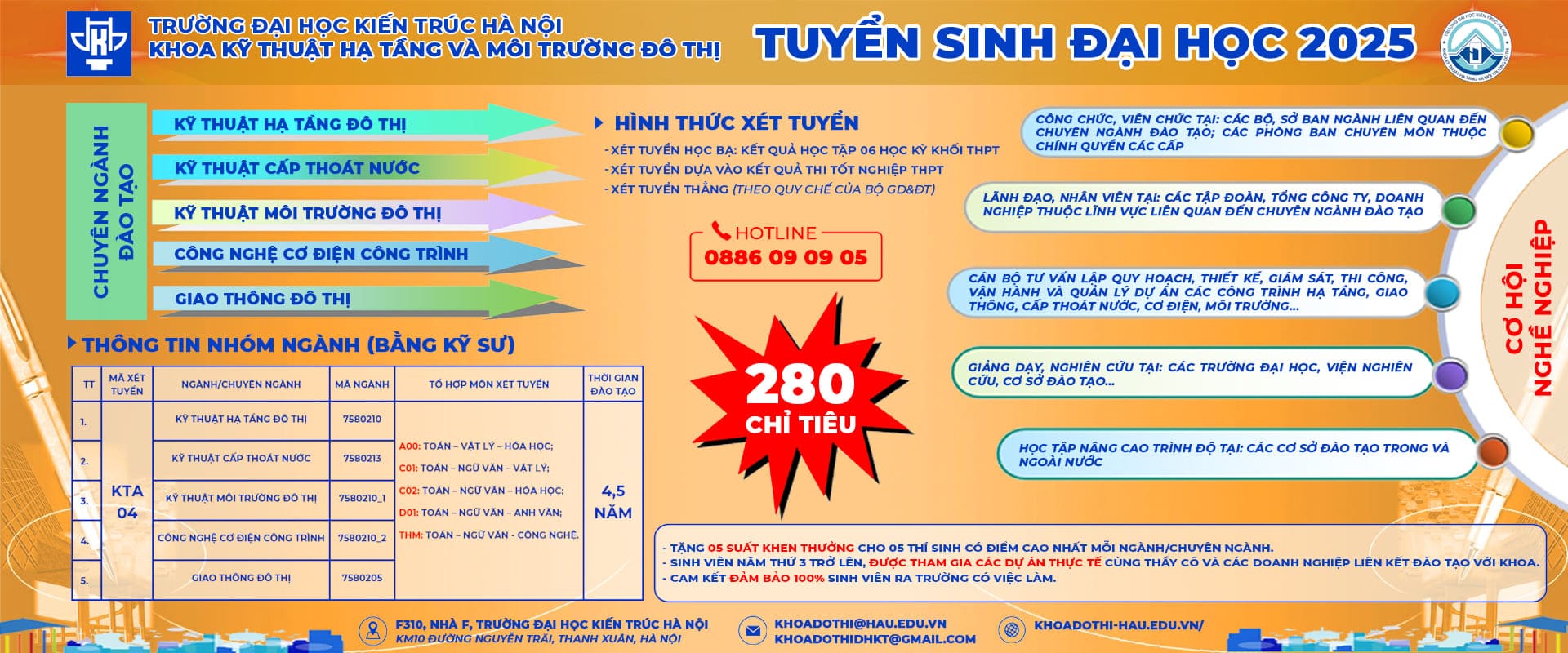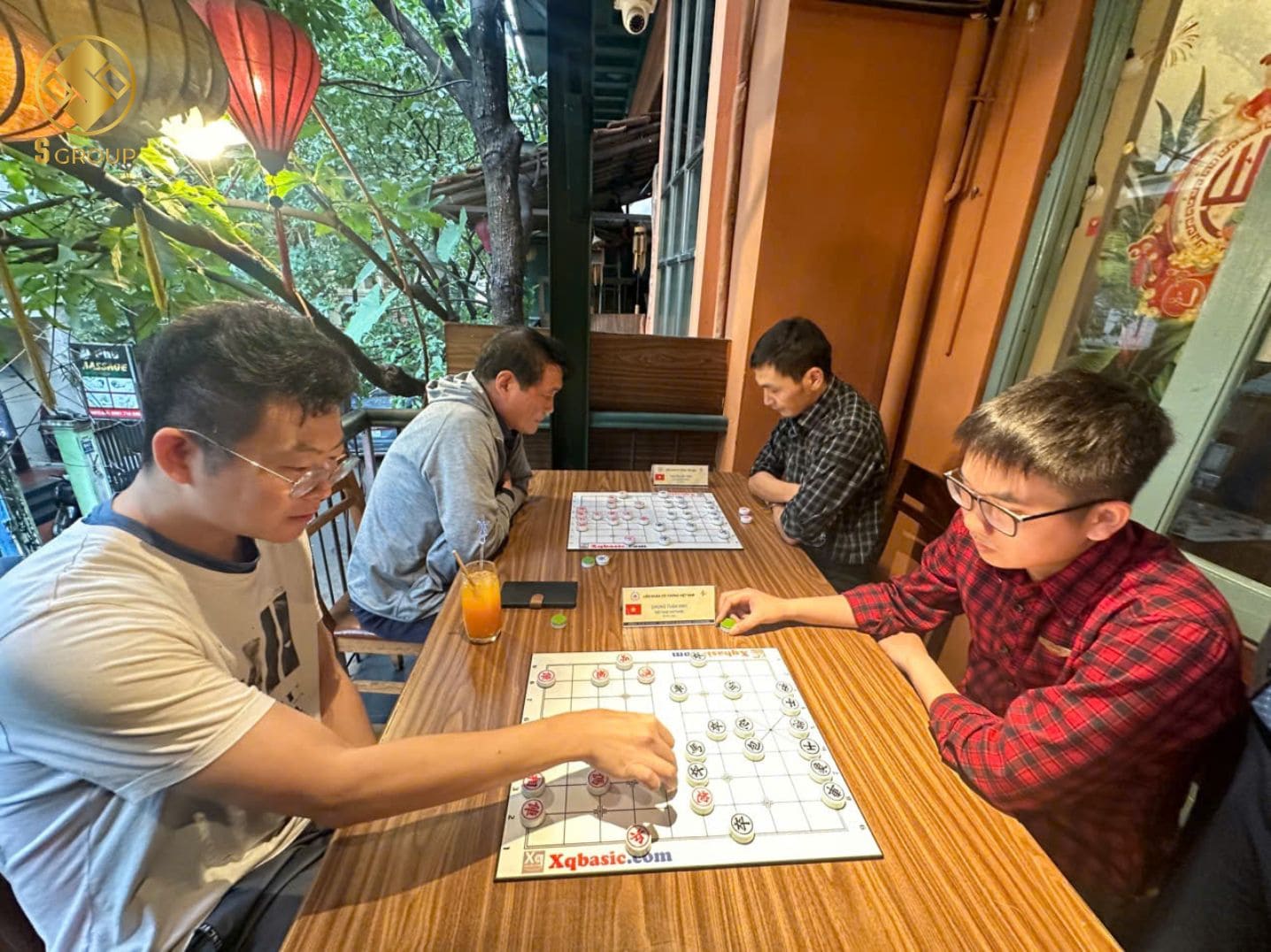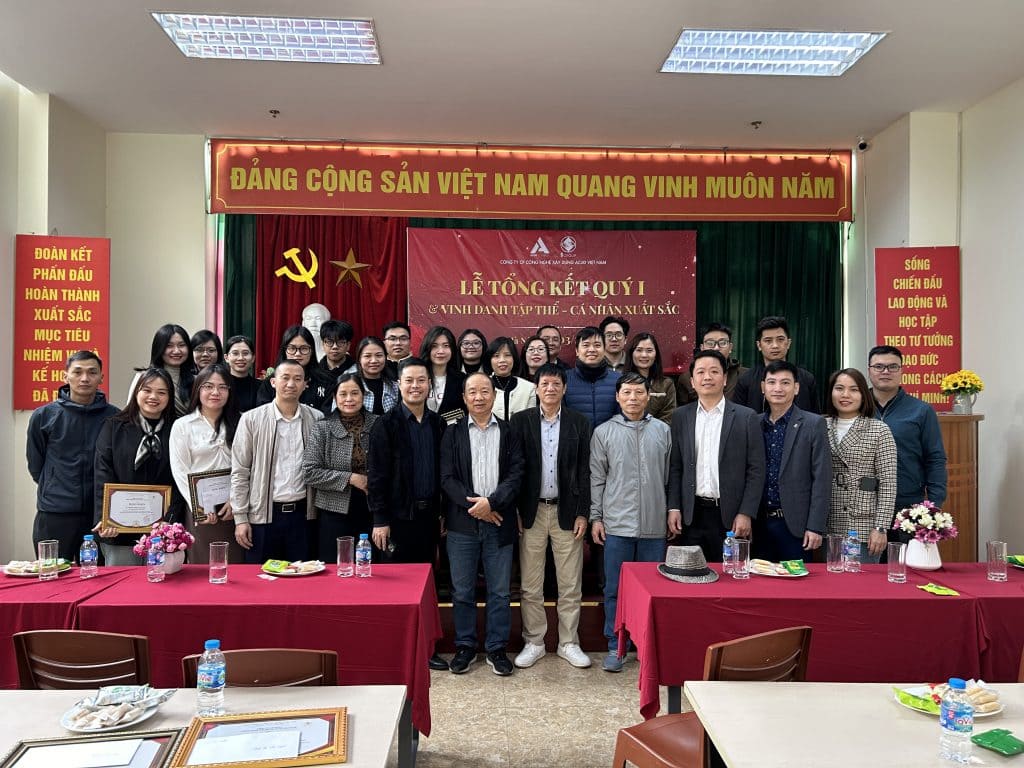Recently, in Hanoi, the Institute of Urban Research and Infrastructure Development organized a roundtable discussion on “Green Solid Waste Management and Environmental Sanitation – Towards Sustainable Green Cities.” S-Group Vietnam was honored to participate in the discussion, presenting a paper on the development of green infrastructure in industrial zones in Vietnam, aiming for carbon neutrality by 2050.
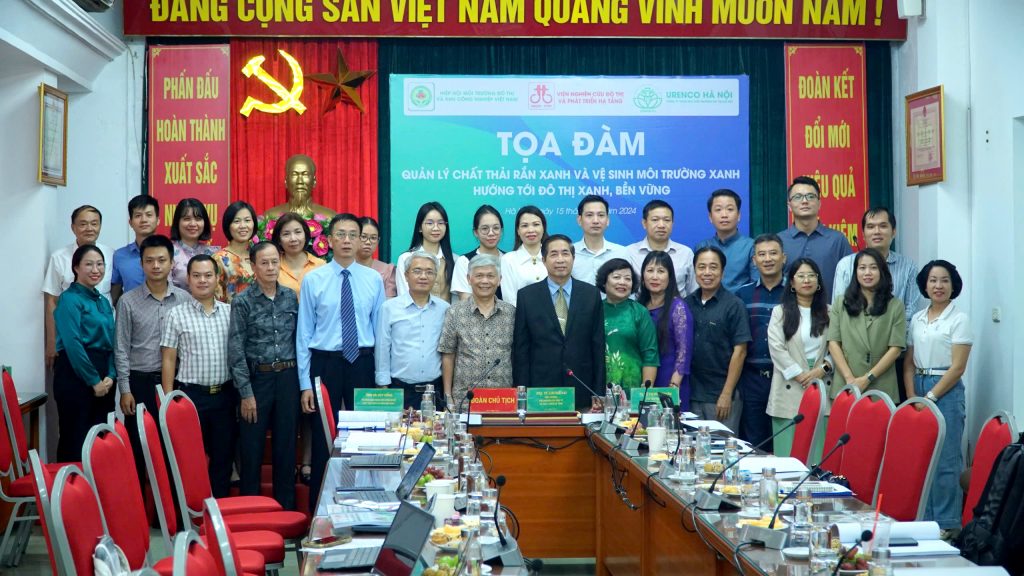
The roundtable discussion was attended by: Assoc. Prof. Dr. Lưu Đức Hải – Director of the Institute of Urban Research and Infrastructure Development; Ms. Sarah Remmei – Urban and Environmental Planning Expert – Spatial Decisions; MSc. Vương Thu Hoài – Institute of Environmental Planning, Urban Technical Infrastructure and Rural Development; Prof. Dr. Trần Đức Hạ – Hanoi University of Civil Engineering; Assoc. Prof. Dr. Đoàn Thu Hà – Vietnam Water Supply and Sewerage Association.
On behalf of S-Group Vietnam, representatives from its member companies included: MSc. Bạch Ngọc Tùng – Director of ACUD Vietnam Construction Technology JSC; Mr. Nguyễn Tiến Đạt – Director of Hùng Vương Construction JSC; Ms. Trần Thị Thu Hà – Head of the Project Development Department of S-Group Vietnam; along with other specialists.
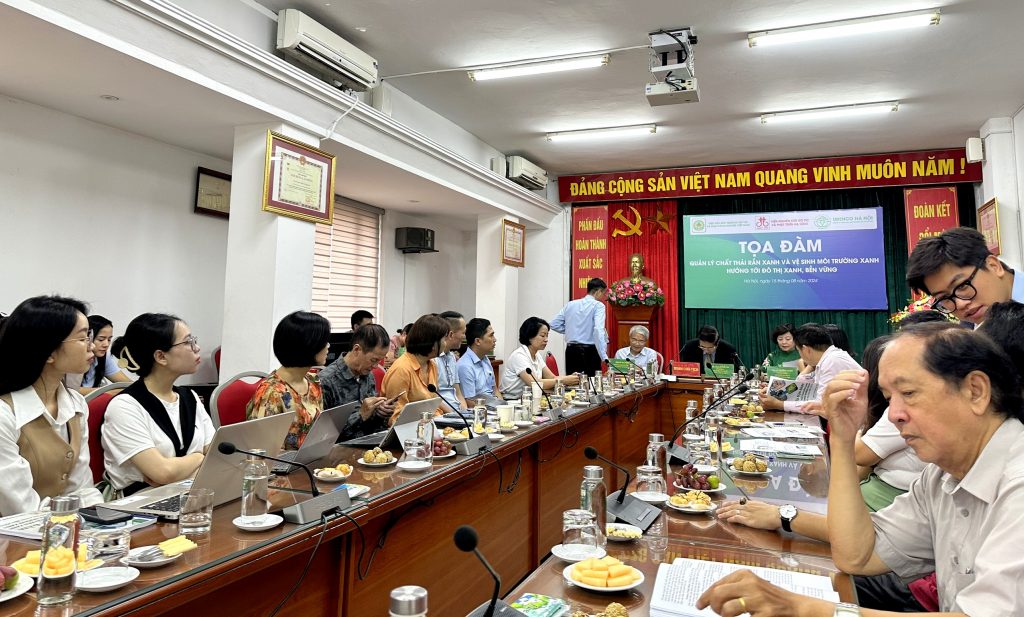
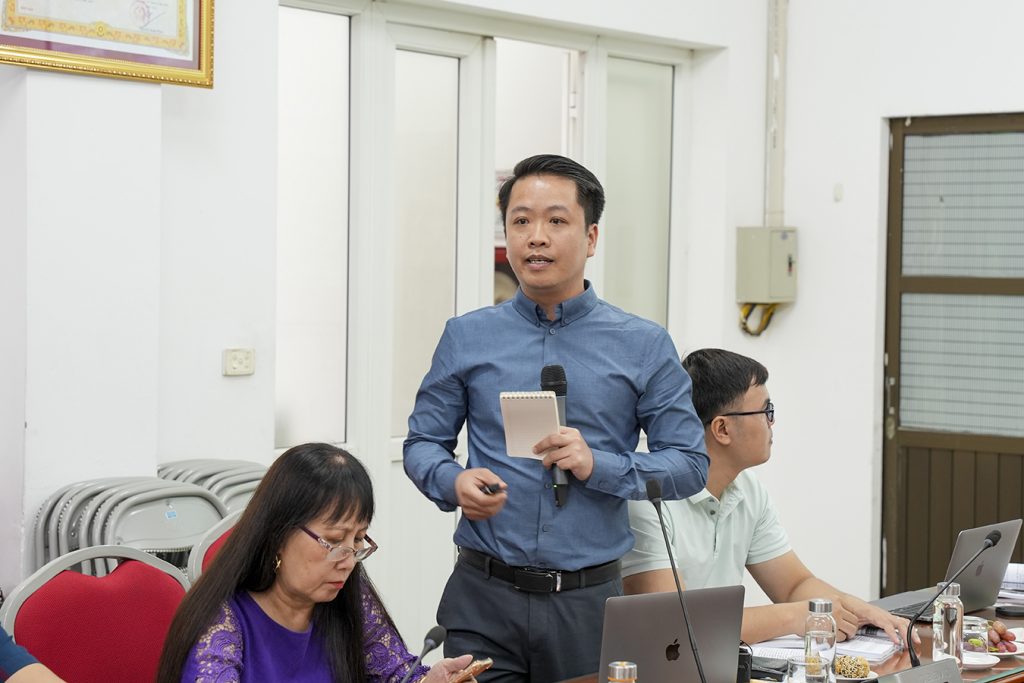
On behalf of S-Group Vietnam, MSc. Bạch Ngọc Tùng delivered a presentation on the development of green infrastructure for industrial parks in Vietnam, aiming for carbon neutrality by 2050.
From the perspective of building green infrastructure for industrial parks, MSc. Bạch Ngọc Tùng, Director of ACUD Vietnam Construction Technology JSC – a member company of S-Group, stated that by the end of 2023, there were 414 industrial parks nationwide, covering a total area of approximately 89,000 hectares. Therefore, developing green infrastructure for industrial parks in Vietnam toward the goal of carbon neutrality by 2050 is an important and necessary objective that requires a comprehensive strategy, including technical solutions and management policies.
Regarding solutions for developing green infrastructure for industrial parks in Vietnam, MSc. Bạch Ngọc Tùng emphasized the need for a green industrial park planning approach, along with prioritizing the use of renewable energy, sustainable wastewater management and treatment, optimal waste management, building sustainable transport systems, using green materials, and raising public awareness.
In particular, integrated green space solutions are needed to create parks, green trees, and flower gardens within and around industrial parks to improve the environment. The arrangement of production areas, warehouses, and offices should also be optimized to minimize internal transportation distances, save energy, and reduce costs.
Evaluating the current situation and citing waste management experiences from various countries around the world, Ms. Sarah Remmei – Urban and Environmental Planning Expert, pointed out that to address these challenges, Vietnam needs to accelerate policy reform and enforce laws in waste management and treatment, aiming for sustainable development.
Additionally, the government should strengthen efforts to attract resources from the private sector and the informal sector in waste management and recycling in an environmentally friendly, green direction. At the same time, it is crucial to enhance public awareness campaigns to change attitudes, leading to appropriate behaviors toward waste, and turning waste into resources.



